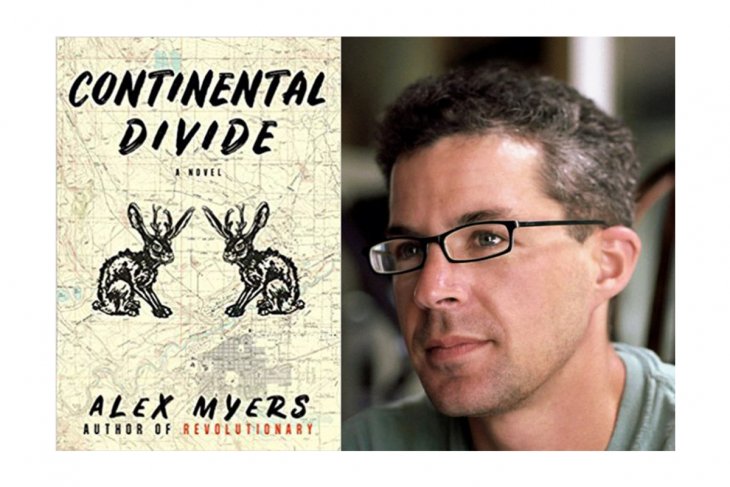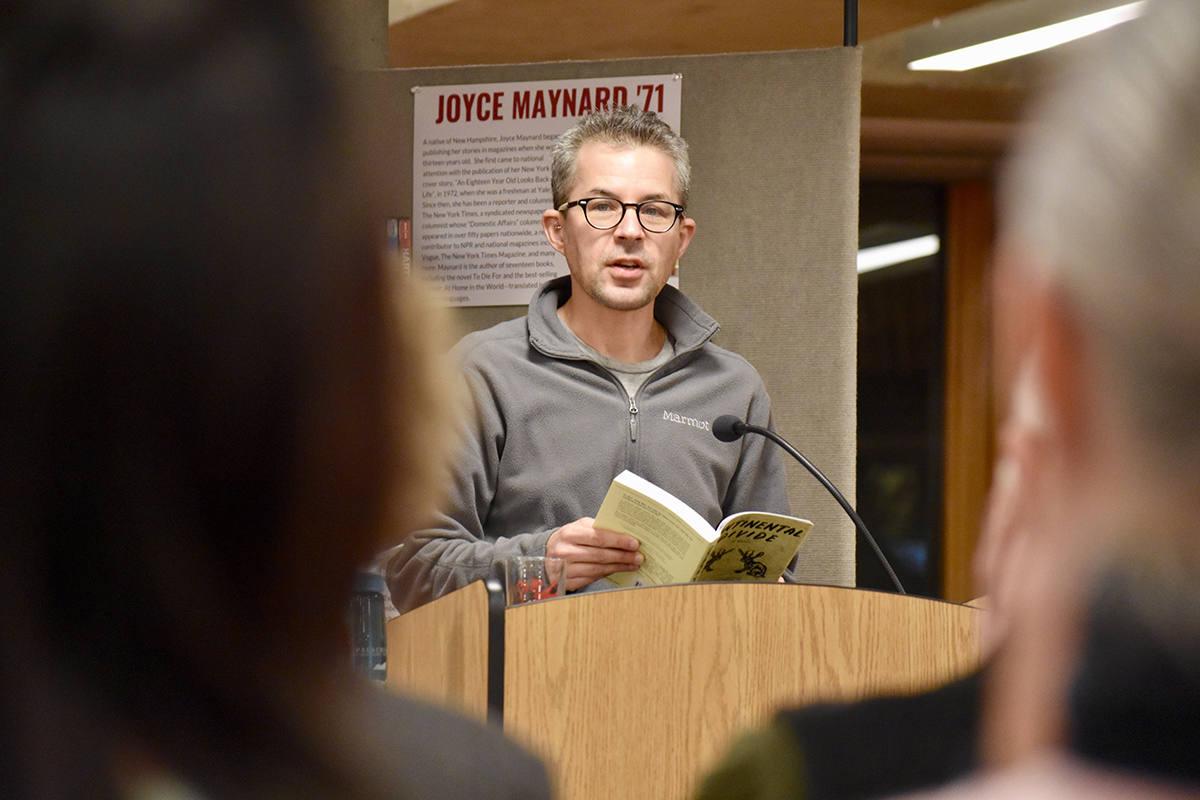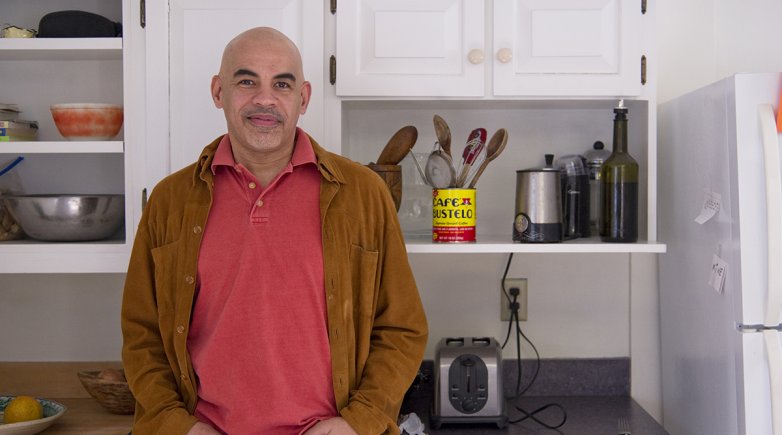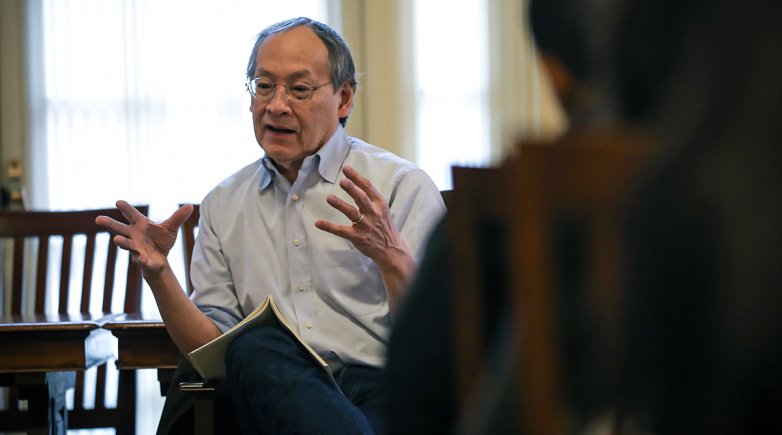Alex Myers

"That’s one of the best things about Harkness: You have to listen for the system to work."
Alex Myers fights for inclusivity, equality and plain old human goodness. Myers was Exeter’s first openly transgender student, attending as a girl for three years and returning for his senior year as a boy. Today, he shares his values by advocating for others, teaching English and writing fiction.
“Writing has helped me understand my gender and my identity in a way that I don’t think I would have been able to if I’d just talked about it,” Myers says. His debut novel, Revolutionary, mined the story of Deborah Sampson Gannett, America’s first female soldier, and was a finalist for the Lambda Literary Award in transgender fiction.
His new novel, Continental Divide, published last fall, hits closer to home. Drawing on his own experience during a challenging summer in Wyoming, Myers introduces readers to Ron — formerly Veronica — a transgender teen. Ron ventures out West where he lands work at a dude ranch and finds himself battling bigotry from co-workers. It’s an experience that proves exhausting, overwhelming and life-threatening, but Ron, like Myers, perseveres. Myers’ well-crafted narrative contains immersive descriptions of Ron’s new world, from air filled with foreign scents (“I breathed in sage and the sharp resin of pine”) to detailed touches that evoke a canny immediacy, as when Ron finds himself in a group of Forest Service firefighters tucked into their sleeping bags “like rows and rows of string beans.” We caught up with Myers, now in his fifth year teaching at the Academy, in between dorm duties to chat about his life and body of work.
As a high school senior, what was it about Exeter that made you feel comfortable enough to be openly transgender?
People here, unlike in a lot of the rest of the world, listen. That’s one of the best things about Harkness: You have to listen for the system to work. I felt that I always had a voice. Even when people didn’t really want to listen to me, there were contexts in which they had to, and where, in turn, I had to listen to them. I had to learn to articulate myself, defend myself and be a good human. I came back here to teach because I felt that the institution values what I value — openness, dialogue, genuine humanity, a belief in goodness — and I saw that there was a lot of change that could happen. I like to be an advocate for change. That’s so intensely frustrating on a political level; it’s much easier in a community like Exeter.
How much of this new novel is based on your own life?
The skeleton of the story was based on my experience; the fictional flesh includes the characters and a lot of the minor incidents. I did head out West, I had gotten a job as a cook on a dude ranch in Wyoming. But after a couple of weeks I was fired. A friend of mine sent a postcard that mentioned that I was trans and the boss fired me on the spot. I did get a job with the Forest Service, but I did not come out to everyone there. I was very much in stealth mode and it both felt awesome — in terms of realizing that I could do that — and terrible and confining because I was continuously hiding and hounded by this secret, wondering what they would do to me if they found out.




